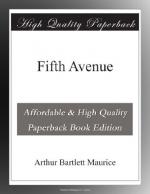Then, in East Twenty-ninth Street, is the rambling old Church of the Transfiguration, loved by all true New Yorkers irrespective of creed, under the name of the “Little Church Around the Corner.” From it the actors Wallack, Booth, and Boucicault were buried, and in it is the memorial window to Edwin Booth, executed by John La Forge, and erected by the Players Club in 1898, in loving memory of the club’s founder. Below the window is Booth’s favourite quotation.
“As one, in suffering all: That suffers nothing; A man that fortune’s buffets and rewards Hast ta’en with equal thanks.” —Hamlet, III., 2.
Often as the story from which the church derived its familiar name has been told, no narrative dealing with New York would be quite complete without it. As it deals with Joseph Jefferson, let it be related in the words of the stage Rip Van Winkle’s Reminiscences. Mr. Jefferson was trying to arrange for the funeral, and in company of one of the dead actor’s sons, was seeking a clergyman to officiate. Here is his story:
“On arriving at the house I explained to the reverend gentleman the nature of my visit, and arrangements were made for the time and place at which the funeral was to be held. Something, I can hardly say what, gave me the impression that I had best mention that Mr. Holland was an actor. I did so in a few words, and concluded by presuming that this would make no difference. I saw, however, by the restrained manner of the minister and an unmistakable change in the expression of his face, that it would make, at least to him, a great deal of difference. After some hesitation he said he would be compelled, if Mr. Holland had been an actor, to decline holding the service at his church.




